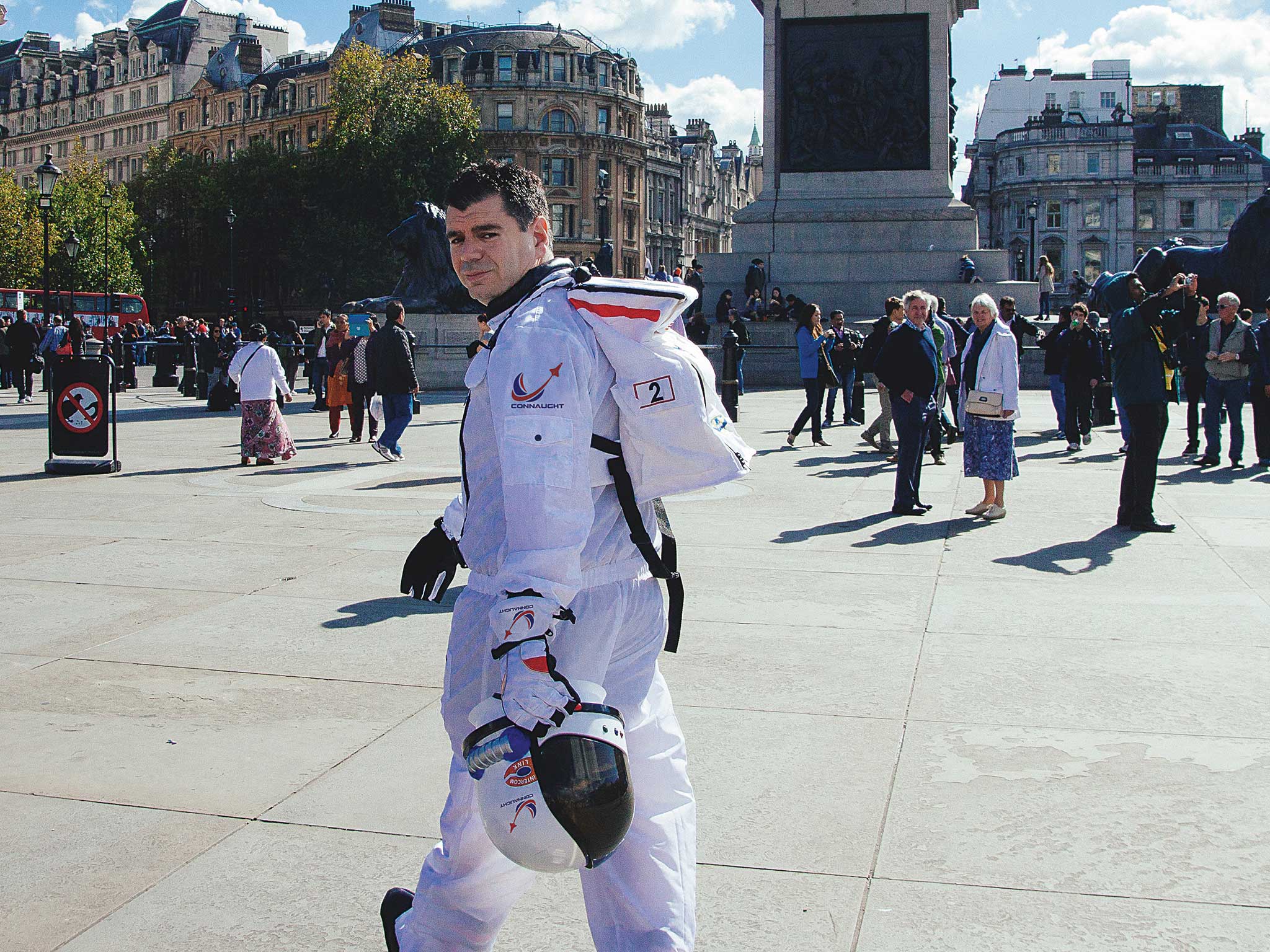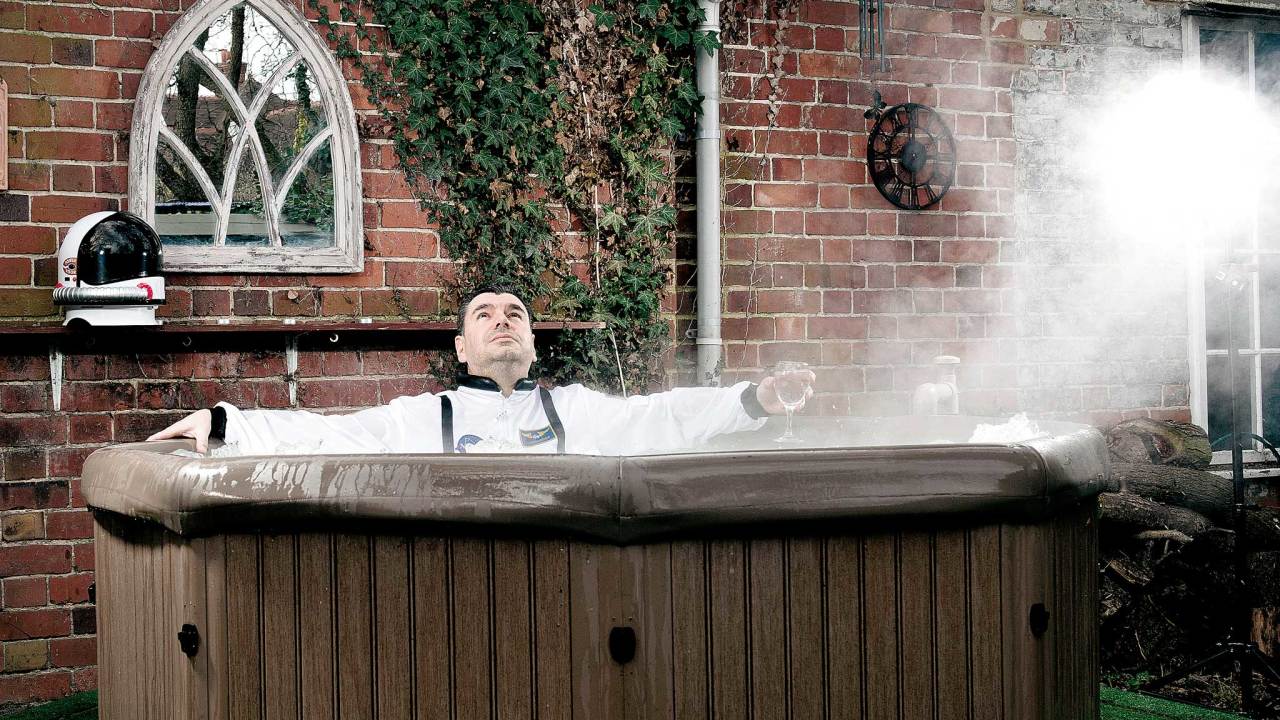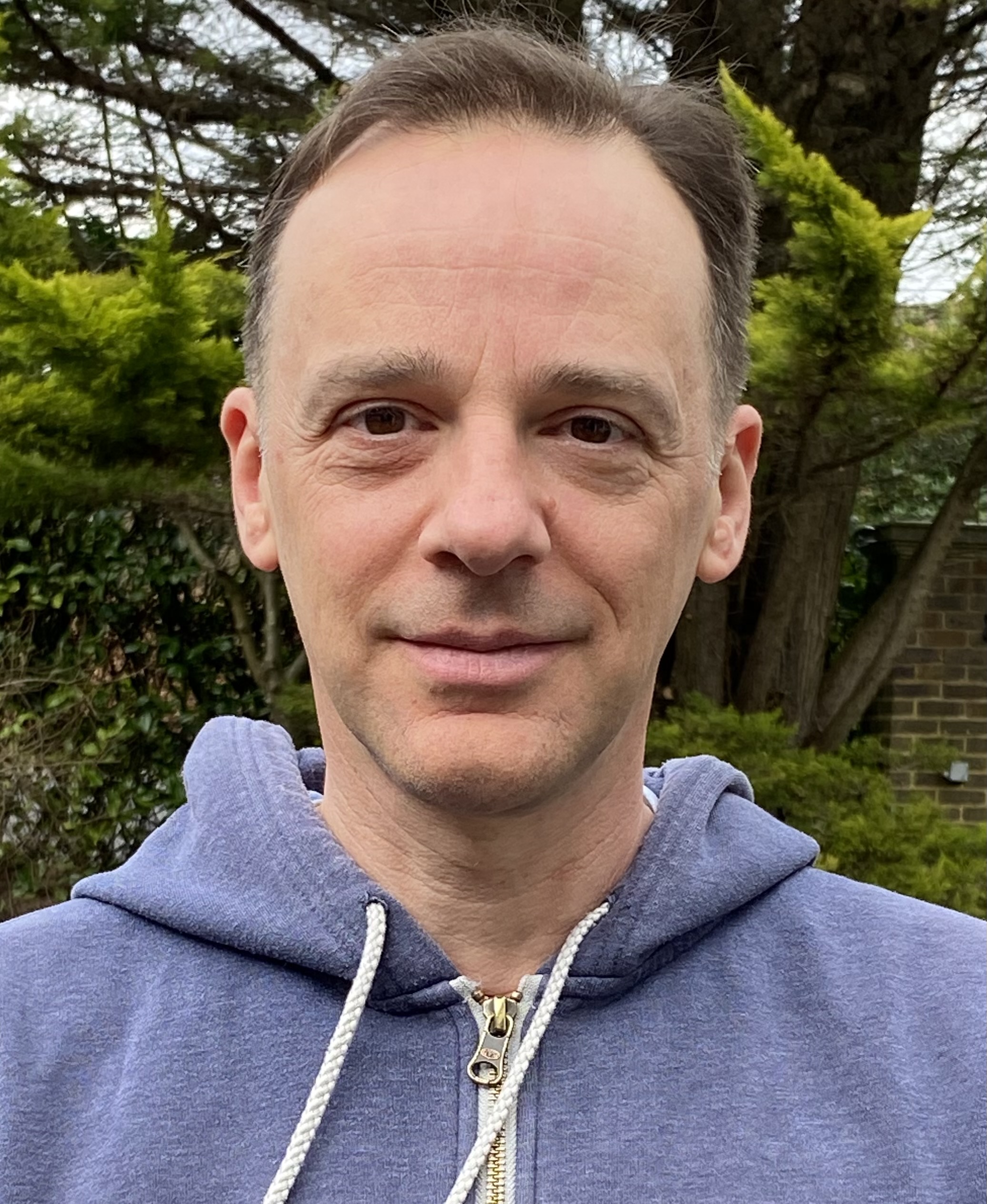Over the past two decades, John Mitchell has carved out a plural career within It Bites, Arena and Frost*, while also gaining a burgeoning reputation as a producer.
But now Lonely Robot sees Mitchell striking out boldly on his own with a true solo album, Please Come Home. Lonely Robot has taken plenty of time to arrive, though. “I’ve been talking about doing this for years – I am the arch procrastinator,” Mitchell confesses.
However, It Bites keyboardist John Beck accepted an offer last year with Fish’s live band and a window of opportunity opened. Mitchell reveals that he and Beck had been working
on a new It Bites album, the successor to 2012’s Map Of The Past, but admits the process was frustrating. “I’m extremely proud of Map Of The Past, which was quite ambitious. But the framework within which I have to work in It Bites is limited by its heritage. With Map… I felt we had been as ambitious as we could.”
Having spent almost a decade fronting It Bites, Mitchell has received plenty of plaudits, but also some opprobrium for having the temerity to step into shoes long vacated by the iconic Francis Dunnery. He believes that Dunnery might be afforded more latitude by the band’s ardent fans. “If I were Francis, we could probably do a reggae album, but that’s not the remit!”
As a consequence, Mitchell wasn’t sure what to do next under the It Bites banner. “We were at an impasse – we’d written and demoed four or five songs but some of it sounded like a backwards step and I didn’t have the greatest enthusiasm for it.
“I would say to anyone considering joining their favourite band, ‘Don’t!’ I love It Bites, but a lot of baggage comes with being in a band that was famous a long time ago. There will always be people who hate you for trying to replicate something associated with their childhood.
“Nostalgia is a very strong emotion and if you don’t deliver on the level they expect, you’ve disappointed them. On one level, rebranding It Bites has been a great success. But there are some casualties and I take the whole thing personally. I’m a delicate individual and probably shouldn’t be in this caper. I should probably be out gardening for a living!”
Mitchell is philosophical about It Bites. “If the boys decided it was time to get Francis back, I’d be the first person down the front cheering them on, and I don’t mean that in an uncaring way. We’ve done as well as can be expected.”
Map…_ _was arguably too ambitious for some fans and Mitchell remembers the initial Map… tour, which featured no old It Bites material. “That upset a few people – there will always be some shouting for Calling All The Heroes. I don’t mind playing it, but that’s their milestone, not mine.”
As such, Lonely Robot has proved a release. “It’s the most refreshing thing I’ve ever done. As well as being entirely narcissistic, it’s taken me back to coming home from school and sitting in my bedroom, recording music. I’ve reclaimed a certain naivety and enjoyment from doing stuff on my own.”
This is not Mitchell’s first stab at putting himself front and centre creatively. While his more mainstream band The Urbane failed to fulfil their potential, the feted Kino album Picture in 2005 (with Beck, Marillion bassist Pete Trewavas and one-time Porcupine Tree drummer Chris Maitland) brought him to greater prominence beyond his long-standing role as guitarist in Arena. However, Mitchell found it hard to move Kino forward.
“I naively thought it was like the three musketeers, but to some people it was a side project or distraction – Pete has Marillion and Chris wanted to earn some money in the West End.”
Mitchell found himself left with Beck, and soon Kino had morphed into a new version of It Bites. Now, he claims that Lonely Robot is essentially what he wanted Kino to be. “Being at the helm of something I wrote and recorded is absolutely the most enjoyable thing I’ve ever done.”
Please Come Home encapsulates Mitchell’s musings on the human condition. Although the album “isn’t a big science piece”, his conversation with Prog includes musings on topics including aviation (from the Wright brothers to the first passenger aeroplane), Occam’s razor, the science of folding space, and wormholes.
“Since the beginning of time there have been civilisations which, in terms of the advancement of technology and ways of thinking, are far removed from what came immediately after them. That’s always fascinated me, when ideals and philosophies come and go. Is human existence all troughs and peaks or is there something else at play? Look at the Egyptians and the creation of the pyramids – such a peak. And then such a trough like the Iron Age makes you wonder if human beings are that destructive.”
While the lyrics are thought-provoking, musically Please Come Home largely eschews instrumental showboating, focusing more on atmosphere, texture and some simple but compelling melodies.
“So much prog is prog by numbers. A lot of people, including weekend warriors, fall under the prog umbrella, but a lot of it is shit. Just because you’ve played something in 7⁄8 for six bars doesn’t make it interesting.”
Would Mitchell aim to take Lonely Robot out on the road? “If it doesn’t completely tank, yes! But I don’t want to do lowest common denominator stuff. The music is of a scale where I don’t want to be playing in a pub to 20 people. I’ve got a bit greedy since doing the Scala with Frost* and It Bites. I’d rather do one gig a year at the Scala with all the guests than 20 gigs up and down the country in pubs.”
There’s no doubting Mitchell’s enthusiasm for Lonely Robot. “I’ve taken great enjoyment doing this after a lot of things that have felt compromised – and I include Kino and It Bites in that. I know there’s a megalomaniacal aspect to that, but you can’t write songs by committee unless one of you is good at writing lyrics and the other at music. That said, I’ve never had an argument with John Beck, but John is more an arranger than a writer so we don’t have that battle. With Arena, I throw some riffs into the ring and then Clive [Nolan, keyboards] puts it all together. Kino was my baby – I don’t care what anyone else says – but didn’t go the way I wanted. It wasn’t treated as seriously as I hoped and everyone had their own agenda.”
Having spent countless hours producing other artists, Mitchell had forgotten how much he enjoys making music himself. “And I’m richer for the experience of having wandered round London in a spacesuit being stared at by tourists!” he laughs, referring to when he dressed up for the Lonely Robot promo shots. “It was one of the most surreal but enjoyable days of my life.”
Please Come Home is out now on InsideOut. For more information, see http://facebook.com/johnchristianmitchell.

SPACE CADETS
Lonely Robot’s sellar line-up of guest stars.
For Please Come Home, Mitchell chose to play most of the instruments himself. Mitchell’s Frost* colleague Craig Blundell (who tours the States this year backing Steven Wilson) supplies spectacular drumming throughout the album. “That stuff just flows out of him,” Mitchell enthuses. “I gave him a rough map of it and he knocked all that out in a day. He’s a genius.”
A late addition was the ubiquitous Nick Beggs (Steven Wilson, Steve Hackett, Fish On Friday), who contributes some bass. “He’s very innovative and has a very different tone to me.”
There are several vocal guests. Marillion’s Steve Hogarth was originally slated just to play piano but ended up adding some recognisable backing vocals. “He’s a fantastic piano player,
which gets forgotten because he’s known as this wonderful singer. I can play keys a bit, but he’s a lot better than I am and he loved doing it.”
Touchstone’s Kim Seviour crops up on Oubliette, one of the album highlights, while former Mostly Autumn singer Heather Findlay duets with Mitchell on gorgeous ballad Why Do We Stay?. “There aren’t many prog duets and I thought I should do one. Heather has a wistfulness and breathiness – I was a Tesco Value Peter Gabriel to her Kate Bush! She sang beautifully.”
More surprisingly, The Boy In The Radio showcases Go West singer Peter Cox. “I love Peter – he’s very humble and has a wonderfully warm, soulful voice. He’s a frustrated
guitar player whereas I’m a frustrated singer, so we bonded over that!”

